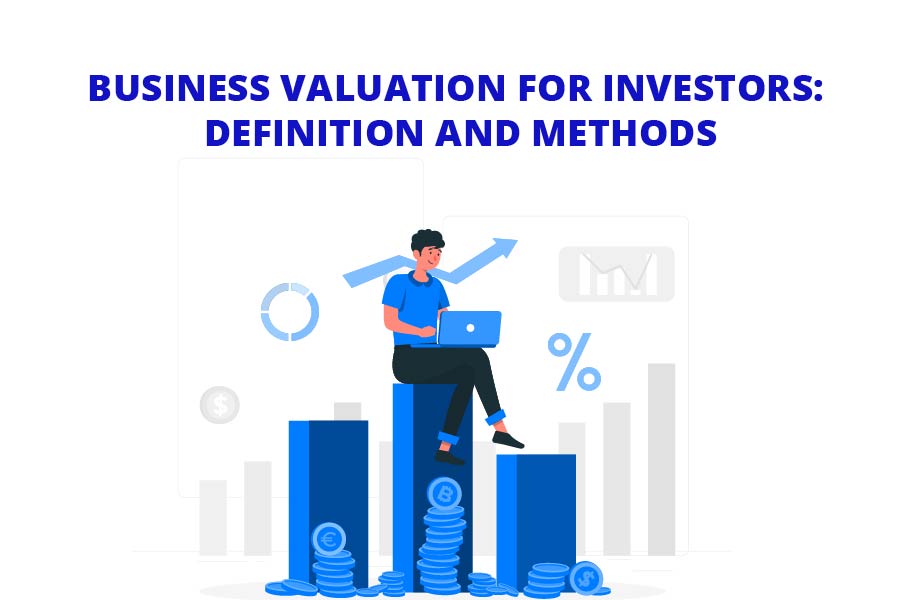Business Valuation for Investors: Definition and Methods. What business valuations are and how to do them
In recent years, business valuation has been attracting the interest of many investors due to the warming of the stock market. However, not everyone fully understands the purpose or process of determining the value of a business. The following article of Vitex Capital is an overview of the definition, why and how of business valuations.
Overview of business valuation
What is Business Valuation?
Business valuation can be described as the process or result of determining the economic value of a company. Valuation is different from pricing. Valuation is intrinsic; it’s based on the actual performance of the business. Pricing results from supply and demand; it incorporates market influences such as overall direction of prices, other investors, and new information such as rumors and news.
Why You Would Need To Do a Business Valuation
- Take as a basis to build business strategies
Every year, businesses will determine their long-term, medium-term and short-term development strategies to address problems in different time frames. Business leaders certainly need to have a sound understanding about the value and position so that they can bring out the most appropriate strategies for development. This is the primary purpose of business valuation.

- Execute a sale or purchase of a business
To be able to reach the final decision about the sale, purchase, or merger of a business, calculating the accurate value of the business is fundamental to negotiations. Valuations are used to benchmark buy-ins and buy-outs for partners and shareholders. By determining the value, the seller will propose a number that is attractive enough to potential investors, but not too detrimental to themselves. The buyer also have to carefully consider the intrinsic value and potential of the company before coming to the official decision.
- Borrow capital or call for investment
In the case of not having enough capital, companies often resort to debt instruments or call for investments as financial leverage. However, in order to succeed in taking out a loan or calling for investment (especially official channels such as banks), proving the ability to repay the debt is a prerequisite. Lenders and investors need to give careful consideration to the real value and growth potential before arriving at the conclusion whether to lend or invest in the company.
- Valuate corporate shares
In the case the business owner wants to attract new and existing shareholders, or issue shares to the public, business valuation is of crucial importance. Through such activities, business owners as well as investors can determine the value of corporate shares, so that being able to reach the right decision related to buying and selling shares.

- Develop an exit strategy
Investors when pouring money into a business will often determine their exit strategy, or business owners will have plans to sell the company in the long term. Through valuations, investors or business owners will have a development strategy to quickly increase profits and value of the company to facilitate the exit plan.
- Resolve legal-related issues
Legal events like dispute, divorce, inheritance, etc. involved in the split or decentralization of the company will require business valuation. For these events, lawyers and relevant parties will conduct business valuation and handle in accordance with the law.
What Business Valuation Means to related sides
- For competent authorities
Valuation of businesses helps to provide the overview of the market situation, thereby devising appropriate strategies to support the management and development of the enterprise ecosystem.
- For Businesses
Determining the business value helps executives form a basis to consider and make strategic decisions to navigate their developmental pathway.
- For business-related partners
Business valuation helps partners such as suppliers, customers, shareholders, investors, etc. have sufficient ground to make business and investment agreements in the most effective way.
Macro and micro factors that affect the value of any businesses
There is a myriad of factors that have a strong influence on how successful the business is. Therefore, in order to accurately calculate the business valuation, it appears necessary to identify factors that may have a considerable impact on the performance of a company, including internal and external factors as follows:
Intrinsic factors
- Asset status
Assets are tangible factors that support the production process and determine the quality of products and services of an enterprise. In addition, assets are also resources that businesses can sell for particular purposes. Therefore, this is regarded as a decisive aspect to show the capacity and potential of the business.
- Location
The meaning of “location” includes both area and topography of the business. These aforementioned factors will create favorable conditions for attracting customers and transporting goods. Besides, location also dramatically influences the operating costs of the business. The most optimal location will differ considerably in the business’s field. Accordingly, the determination of location will exercise such an enormous influence on the determination of business value.

- Reputation
Reputation or brand is an intangible element of tremendous value to businesses. Building a good image with customers and partners will significantly contribute to creating a huge potential revenue source. Today, a brand is something that can be transacted with great deal. For this reason, the business valuation process really needs to take this factor into consideration.
- Technical and technological competence
This factor can be said to be of paramount importance, especially for businesses that provide products and services requiring high level of technology. This capacity is shown through factors such as technical level of workers, modern equipment and machinery, intellectual property rights, etc. In the context of a competitive and rapidly changing market, possessing high-tech capabilities help businesses adapt quickly and compete effectively.
- Human capacity
A business being able to stably develop incredibly depends on human factors, especially the group of key executives. Possessing good human capabilities help businesses boost the potential value of the business.
Extrinsic factors
- Macro environment
Factors such as economy, politics, culture – society, science – technology may either create favorable conditions or hinder the process and development potential of businesses. In certain circumstances, the fluctuations of these macro factors can indirectly cause the business to go bankrupt.
- Specific environment
Specific environment refers to industry factors, which have a direct impact and which the enterprise can control to some extent. Specific factors include relationships with customers, suppliers, competitors, government departments & agencies, etc.
Business valuation method
Valuations are usually carried out by a team of experts and by a standard process. Here are the basic steps of a business valuation procedure:
Step 1: Outline a plan and prepare the necessary conditions
The more accurate the business valuation is, the more effective the subsequent decisions will be and vice versa. Hence, relevant parties need to prepare carefully for the valuation activity. To make an effective plan, businesses need to answer the following questions:
- What is the purpose of valuation?
- What are the criteria to be met when conducting a valuation?
- What information is needed for the valuation?
Step 2: Collect and synthesize information on financial statements
The value of any businesses is the present value of expected future profits. To identify these factors, business data in the past is such a valuable source of information.
In addition, appraisers need the balance sheet and income statement of the business for at least the last 5 years to make accurate analysis and predictions.
Furthermore, businesses also need to pay attention to past reporting adjustments (eg: revenue adjustments for tax avoidance/tax planning). The above said adjustments may help businesses reduce taxes in the past, but they cannot reflect the full performance of the business, so it will be detrimental to the valuation.

Step 3: Choose an appropriate business valuation method
There are many different ways to determine business value, and the choice of method will depend on the valuation criteria and capabilities of each company. Some of the common business valuation methods are as follows:
- Net asset value, or book value method
- Discounted cash flow method
- Market value method (using price-to-earnings ratio, known as P/E ratio)
Step 4: Make conclusions and evaluate the business
This is the most important step in the business valuation process. After measuring the value and coming to specific results, we will aggregate the results into a data table for comparison. It is inevitable that there will be a difference in value among methods, but the art of valuation is the understanding of the criteria and prioritizing to arrive at the final value.
Valuing a business is an activity that requires a lot of skills, experience as well as business thinking. We hope that this article will help readers gain useful information, as well as understand the method of determining business value.

